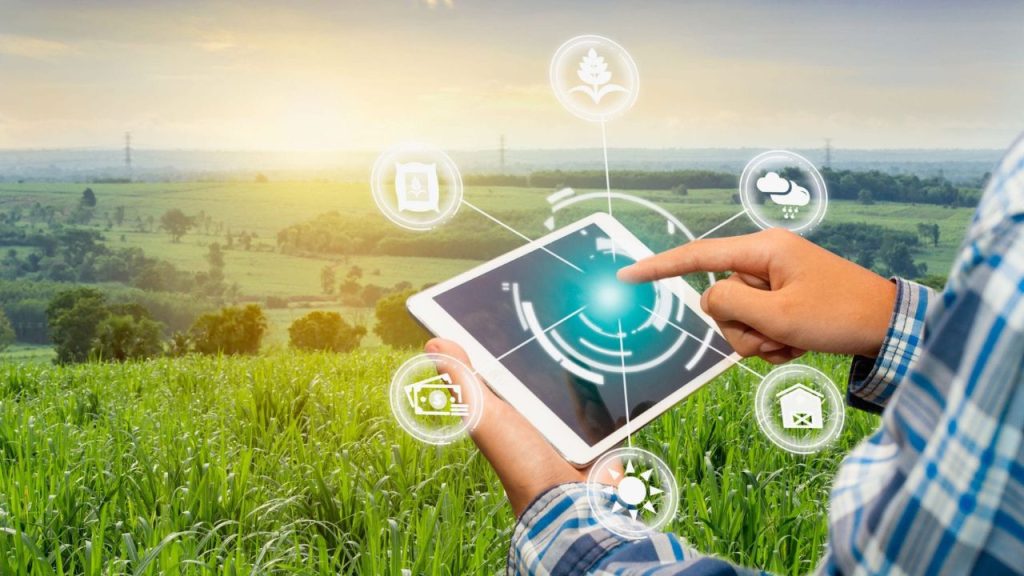Revolutionising Agriculture with Technology
The UK agro sector is undergoing a significant transformation, driven by the rapid adoption of technology and innovation. From precision farming to the use of drones and artificial intelligence (AI), modern agriculture in the UK is becoming more efficient, sustainable, and productive. These advancements are not only addressing the challenges of food security and environmental sustainability but also ensuring that British agriculture remains competitive on a global scale.
Precision Farming: Maximising Efficiency
One of the most significant technological innovations in the UK agro sector is precision farming. This approach uses data-driven techniques to optimise crop yields and reduce waste. By using GPS technology, sensors, and data analytics, farmers can monitor soil conditions, weather patterns, and crop health in real time. This information allows for precise application of water, fertilisers, and pesticides, ensuring that resources are used efficiently and sustainably.
The Rise of Smart Farming Equipment
Smart farming equipment is revolutionising the way UK farmers manage their land and livestock. Autonomous tractors and robotic harvesters are becoming increasingly common, reducing the need for manual labour and increasing productivity. These machines are equipped with sensors and AI to navigate fields, plant seeds, and harvest crops with minimal human intervention.
In addition, wearable technology for livestock is gaining popularity. These devices monitor the health and behaviour of animals, providing farmers with valuable insights that can improve animal welfare and productivity. For example, sensors can detect early signs of illness, allowing for timely treatment and reducing the risk of disease outbreaks.

Drones and Satellite Imagery in Agriculture
Drones and satellite imagery are playing an increasingly important role in the UK agro sector. Farmers are using drones to monitor crop growth, assess soil health, and even apply pesticides. Drones provide a bird’s-eye view of fields, allowing for early detection of issues such as pest infestations or nutrient deficiencies.
Satellite imagery, on the other hand, offers a broader perspective, helping farmers to plan crop rotations, manage water resources, and track changes in land use over time. These technologies enable farmers to make informed decisions that improve crop yields and reduce environmental impact.
Artificial Intelligence and Big Data
Artificial intelligence (AI) and big data are transforming the way UK farmers approach decision-making. AI algorithms can analyse vast amounts of data from various sources, such as weather forecasts, soil sensors, and market trends, to predict the best times to plant, irrigate, and harvest crops. This predictive capability helps farmers to maximise yields while minimising risks.
Big data is also being used to improve supply chain efficiency. By analysing data on consumer preferences, market demand, and logistics, farmers can better plan their production and distribution strategies. This reduces waste, lowers costs, and ensures that fresh produce reaches consumers more quickly.
Sustainable Innovation in the Agro Sector
Technology and innovation in the UK agro sector are not just about increasing productivity; they also play a crucial role in promoting sustainability. For example, vertical farming, which involves growing crops in stacked layers indoors, is gaining traction as a way to reduce the environmental impact of agriculture. This method uses less water and land while producing higher yields year-round.
Furthermore, innovations in renewable energy, such as solar-powered irrigation systems and biogas production from agricultural waste, are helping farmers reduce their carbon footprint and operate more sustainably.
The Future of Agriculture in the UK
The future of agriculture in the UK is undoubtedly intertwined with technology and innovation. As the sector continues to evolve, we can expect to see even more advancements that will further enhance productivity, sustainability, and competitiveness. The adoption of smart technologies, coupled with a focus on sustainability, will ensure that the UK agro sector remains a global leader in agricultural innovation.
Conclusion: Technology and Innovation in the UK Agro Sector
Technology and innovation are driving a new era in the UK agro sector. Precision farming, smart equipment, drones, AI, and sustainable practices are transforming agriculture, making it more efficient and environmentally friendly. As these technologies continue to evolve, they will play a vital role in ensuring the future success and sustainability of British agriculture.
